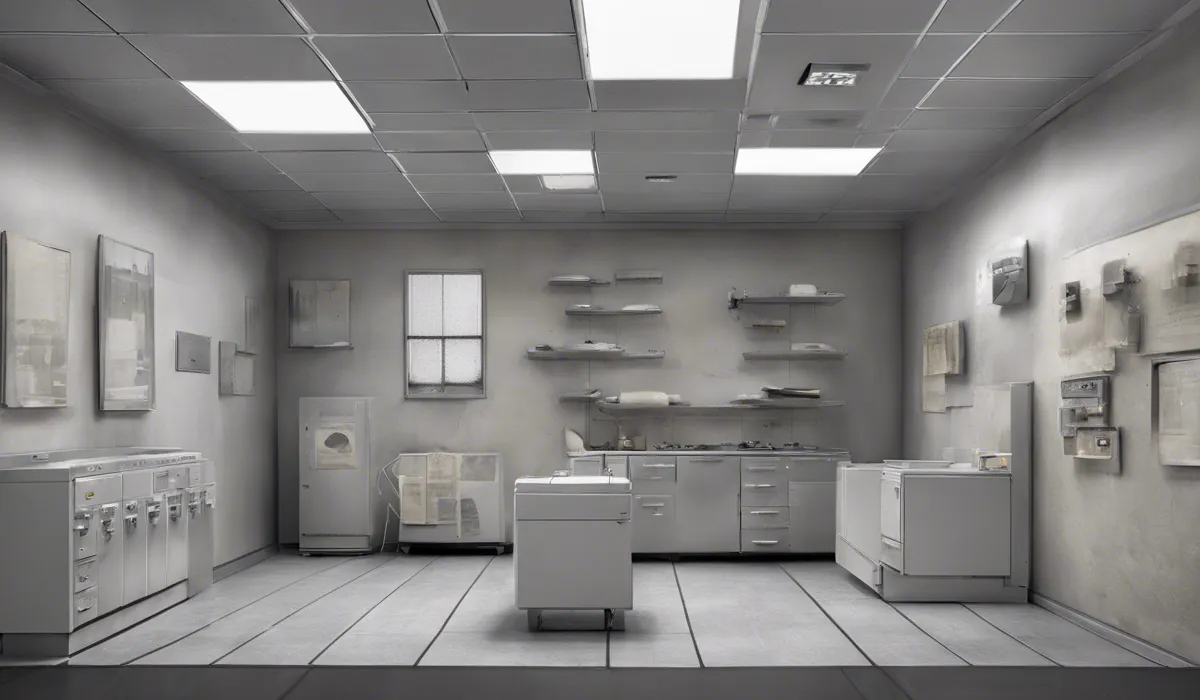To win a mold case, collect substantial evidence of mold presence and harm. Hire an expert to testify on mold’s impact, document health issues, and establish a link to the mold exposure. Prove property owner negligence in addressing the mold problem. Follow legal guidance specific to your jurisdiction.
Understanding Mold Litigation

Definition of Mold Litigation
Mold litigation refers to legal disputes that arise when mold growth causes harm or damage.
In these cases, one party, often a tenant or homeowner, sues another party, like a landlord or builder, for health problems or property damage caused by mold. The aim is to get compensation for these harms.
Common Reasons for Mold Cases
People start mold cases for various reasons. Some common ones include health issues linked to mold exposure, property damage from mold infestation, and mold growth due to poor building maintenance.
When mold harms health or living conditions, it can lead to a lawsuit.
The Burden of Proof in Mold Cases
In a mold case, the person suing must show that mold is present and it caused harm. This means gathering evidence to prove that mold growth was not handled properly and it led to health problems or damaged property.
The more clear and strong the evidence, the better the chances of winning the case.
Key Legal Concepts in Mold Litigation
Negligence
Negligence is when someone does not take proper care to avoid causing harm to others. In mold cases, this could mean a landlord failed to fix a mold problem, leading to tenant health issues.
Breach of Warranty
Breach of warranty happens when a landlord or seller does not meet the promise of providing a safe and livable space free from mold.
Constructive Eviction
Constructive eviction is when living conditions are so bad that a tenant is forced to leave. Mold can be a reason for this if it makes the home unsafe.
Preparing for Your Mold Case

Documenting Evidence of Mold and Associated Damages
To prepare for a mold case, take photos of the mold and keep records of any damage it caused.
Write down when you first noticed the mold and any steps you took to get it fixed. This will help show the problem and your efforts to solve it.
Gathering Medical Reports if Health Has Been Affected
If mold has made you sick, collect reports from your doctor. These will be crucial in showing how the mold has harmed your health.
Hiring Experts for Mold Identification and Causation
Experts can test your home for mold and explain how it could have caused damage or health issues. Their knowledge can be very powerful in proving your case.
Understanding State Laws and Statutes of Limitations
Each state has its own rules about mold cases. Find out what the laws are in your state and when you need to file your case by. This is important to make sure you do not miss your chance to sue.
Selecting an Attorney Specialized in Mold Litigation
Choose a lawyer who knows about mold laws and has won mold cases before. They can guide you through the process and help you get the best outcome.
Strategies for Winning a Mold Case

Effective Communication with Your Lawyer
Keep in touch with your lawyer and share all the details of your case. This helps them understand the situation and plan the best way to win.
Presenting a Strong Narrative That Ties Evidence Together
Organize your evidence to tell a clear story about how the mold has affected you. This makes it easier for others to see why you should win the case.
Negotiating with Defendants Before the Trial
Try to talk to the other side and reach an agreement before going to court. This can save time and money and sometimes leads to a faster solution.
Techniques for Proving Negligence or Breach of Contract
Show that the person you are suing knew about the mold and did nothing to fix it. This can help prove they were negligent or did not keep their promise of a safe home.
Understanding Insurance Company Tactics
Insurance companies might try to pay you less than you deserve. Know their tactics and stand firm in getting fair compensation for your mold-related harm.
Role of Mediation and Arbitration in Resolving Mold Disputes
Mediation and arbitration are ways to solve disputes without going to court. They can be quicker and cost less, and they allow both sides to have a say in the outcome.
FAQs About Winning a Mold Case
What evidence is needed to win a mold case?
To win a mold case, you need substantial evidence of mold presence through documentation or testing, and expert testimony on the impact of the mold.
How important is expert testimony in a mold case?
Expert testimony is critical in establishing the type of mold, its health effects, and the link between mold exposure and the specific health issues suffered.
What should be documented to prove health issues related to mold?
Document all health issues with medical records and show a clear link between these issues and the mold exposure.
How can you establish property owner negligence in a mold case?
Prove that the property owner was aware of the mold issue and failed to take reasonable steps to address it, resulting in harm.
Why is legal guidance important in a mold case?
Legal guidance is essential to navigate the specific laws and regulations of your jurisdiction regarding mold cases and landlord responsibilities.
Final Thoughts
To prevail in a mold litigation, it is crucial to gather robust evidence of both the mold’s presence and its detrimental effects. Employing an expert witness, documenting health complications, and proving a causal link to the mold are key steps. Establishing the property owner’s failure to rectify the mold issue is also essential. Always adhere to the legal procedures specific to your locale.
